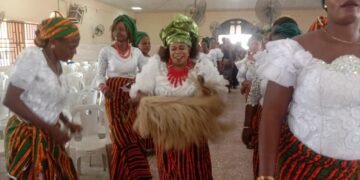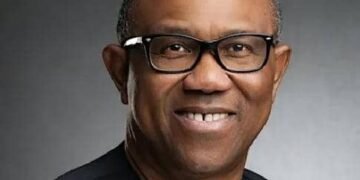The Role of Women in the Catholic Church: Progress or Stagnation?
Pope Francis’s recent reaffirmation against the ordination of women as deacons, as detailed in his recent interview with reporter, Norah O’Donnell, demonstrates the Catholic Church’s adherence to its long-standing traditions and doctrines. This decision has been met with both support and criticism, highlighting the ongoing debate about the role of women within the Church. However, when viewed through the scope of Church tradition and theology, one understands that this stance represents a commitment to doctrinal integrity rather than stagnation.
The Catholic Church’s teachings on holy orders being reserved for men are deeply rooted in its interpretation of scripture and historical precedent. According to Church doctrine, the role of the clergy is modeled after Jesus Christ and his apostles, who were all male. This is not merely a matter of social custom but a theological conviction that the Church believes it must uphold to remain faithful to its foundational truths.
Pope Francis, in his interview, emphasized the significant contributions of women within the Church, stating that women have always played vital roles without needing official clerical positions. This highlights an important distinction: while women may not serve as deacons, priests, or bishops, their influence and participation in Church life are profound and indispensable.
Women have historically been, and continue to be, pillars of the Catholic Church. They are involved in various ministries, education, healthcare, and charitable works, often serving as the backbone of many Church activities. Pope Francis acknowledged that women are “catalysts for change and guardians of life,” stressing their irreplaceable roles within the Church community. This recognition points to a form of progress that values and elevates women’s contributions without altering the sacramental framework that the Church believes is divinely instituted.
Thus, Pope Francis’s stance aligns with the Church’s commitment to maintaining theological consistency. The Catholic Church holds that the sacrament of holy orders is a gift that Jesus entrusted to men, and changing this would mean altering a fundamental aspect of the faith. The Pope’s refusal to ordain women as deacons reflects a desire to stay true to what the Church believes is Christ’s intention for the clerical state.
By preserving this tradition, the Church aims to safeguard the integrity of its sacramental theology. This is not a rejection of the capabilities or the dignity of women but a continuation of a theological understanding that has shaped Catholic identity for centuries.
More so, the Pope also articulated a vision where women and men have complementary roles within the Church. He noted that women are often braver and more capable of protecting life, qualities that are invaluable to the Church’s mission. This perspective does not see the refusal to ordain women as a limitation but as an affirmation of their unique and vital contributions to the Church’s life and ministry.
Overall, Pope Francis’s reaffirmation of the traditional stance on female ordination is a reflection of the Catholic Church’s commitment to its doctrinal foundations. While some may view this as stagnation, it is, from a traditional perspective, a necessary adherence to what the Church understands as divine will. The roles of women within the Church, though not clerical, are deeply respected and integral to the Church’s mission. Thus, this stance is not a denial of progress but a different understanding of progress—one that values continuity, tradition, and the unique contributions of all members of the Church.











































